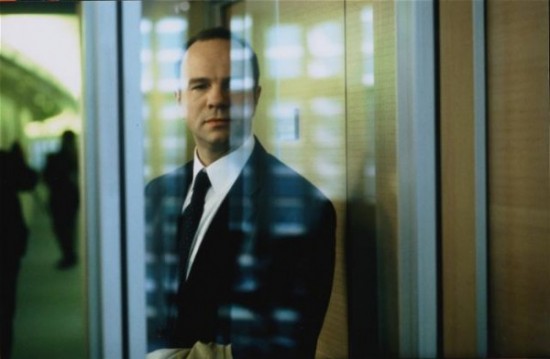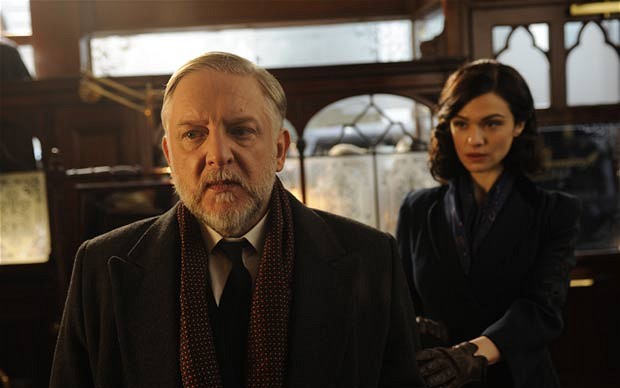Ben Affleck directs and stars in Argo, unquestionably the best Hollywood movie of the year so far. In this true story from the Iran Hostage Crisis, a down-on-his-luck spy rescues six Americans hiding in the Canadian Ambassador’s Tehran home by pretending to make a cheesy Hollywood sci fi movie. The scenes in Tehran and Washington are pure thriller, leavened by the very funny Hollywood thread.
It’s a gripping story. Setting up the audacious plan is only the beginning. It must be sold to risk averse government officials. And it must be sold to the “house guests”, who clearly understand how risky it is. The diplomats must learn their cover identities as Canadian filmmakers well enough to withstand interrogation. And the team must be shuttled past layer upon layer of suspicious, trigger happy and completely unpredictable revolutionaries. Helluva story, well told.
Thanks to director Affleck, editor William Goldberg and cinematographer Rodrigo Prieto, Argo is brilliantly photographed and constructed.It is economical story-telling at its best, with each shot revealing critical information – the lethal chaos in the streets of Tehran, the paralyzing fear of the house guests, the determination of Affleck’s operative.
It’s a deep cast. John Goodman and Alan Arkin are hilarious as the movie industry guys. Scoot McNairy and Christopher Denham are especially good as house guests. Farshad Farahat is compelling as the commander of the final revolutionary checkpoint. The rest of the cast is equally superb: Bryan Cranston, Philip Baker Hall, Richard Kind, Michael Parks, Clea DuVall, Adam Arkin, Chris Messina and Victor Garber. Watch for a bit role played by 80s horror maven Adrienne Barbeau.
This could have been jingoistic, but Affleck starts the movie with an animated historical primer to remind (or teach) the audience about why the Iranians were so angry. And he generously included another American perspective during the end credits. Much more nuance than the standard Hollywood movie – good for Affleck!


